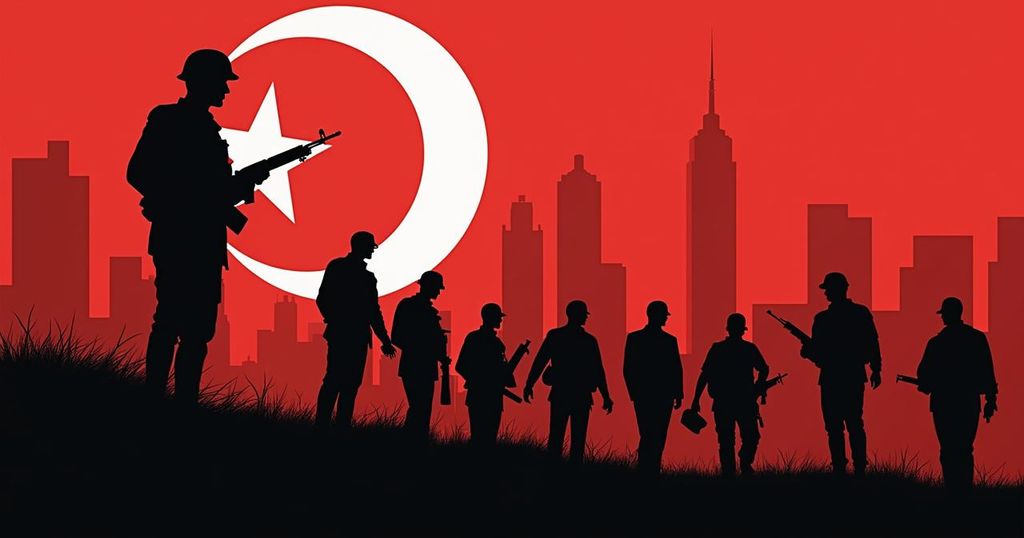As Tunisia approaches its presidential election, the military’s growing involvement in politics under President Kais Saied raises alarms. Once marginalized, the military’s significance surged post-revolution, but Saied’s consolidation of power intertwines military authority with governance, prompting concerns about the potential erosion of democracy. The election presents a critical juncture for the army’s role as a democratic guardian or contributor to authoritarian rule.
In Tunisia, the increasing involvement of the military in political affairs has become a subject of concern as the nation approaches its presidential election. Historically, the Tunisian Army was relegated to a background role under the regimes of Presidents Habib Bourguiba and Zine el-Abidine Ben Ali, only to rise in prominence during the 2011 revolution, where it was perceived as the guardian of democracy. Since President Kais Saied assumed office in 2019, however, the army has experienced significant political elevation. Following his consolidation of power in July 2021, President Saied has integrated military officials into his cabinet, an unprecedented move that has raised alarms regarding the military’s potential influence on governance. In contrast to other regional counterparts like Algeria and Egypt, the Tunisian military has not traditionally acted as a political-economic force. This is attributed to Bourguiba’s early insistence on maintaining strict civilian control over the military and his influence from the French political model. Notably, following the 2011 revolution, the military gained acceptance, seen as a stabilizing force amidst government turmoil, especially in challenging situations such as the terrorist attacks from 2011 to 2016. The army’s strong public image contributed to its involvement in election organization, reinforcing its position as a protector of democracy. Throughout the post-revolutionary decade, military funding and activities increased significantly due to Western support, particularly from the United States. The Tunisian military has since enhanced its operational capacity, adopting a more dominant role in public life and governance, particularly following President Saied’s measures perceived as authoritarian. While President Saied initially cultivated military support, tensions have since emerged in response to his handling of the political landscape. The army’s historical commitment to protecting the republic’s democratic framework now faces testing circumstances as various political factions are suppressed under Saied’s directive. Critically, as the imminent presidential election approaches, observers question whether the military will align with the principles of democracy or contribute to a further consolidation of authoritarian rule.
The political landscape of Tunisia has undergone considerable transformation since the 2011 revolution, which marked the end of Ben Ali’s rule and began the process of democratization. For decades, the Tunisian army was deliberately kept from political engagement as a result of Bourguiba’s policies aimed at ensuring civilian dominance in governance. The post-revolution era saw the military’s image shift to that of a protector of democracy, a perception bolstered by public appraisals of its role during periods of national crisis. Over recent years, the military’s prominence has surged, particularly under Kais Saied’s presidency, where it has taken on an increasingly direct role in ministerial positions and political discourse, raising critical questions about the implications for Tunisia’s democratic future.
The evolving role of the Tunisian military in politics, particularly under President Kais Saied, signals a significant shift that raises concerns among observers regarding the potential impact on the nation’s democracy. While the military has historically been seen as a stabilizing force, the recent appointments of military officials to critical governmental roles and the suppression of dissent suggest a troubling intertwining of military and political authority. As Tunisia prepares for its upcoming presidential election, the military’s commitment to upholding democratic principles versus supporting authoritarian measures will be pivotal in determining the direction of the nation’s governance.
Original Source: www.middleeasteye.net







